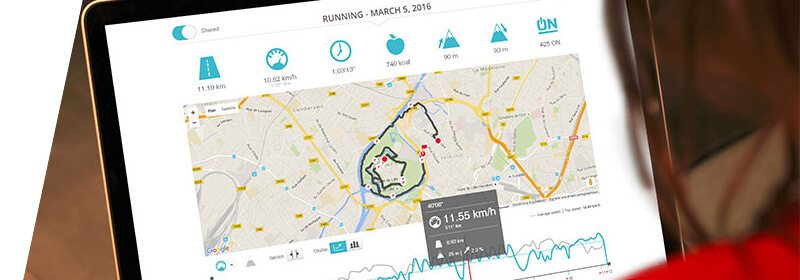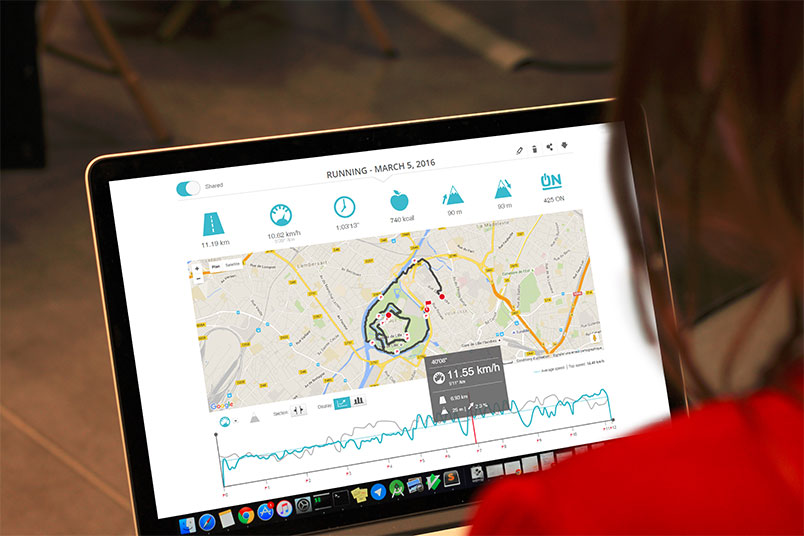Starting a new sport: the different phases
Starting an activity or a sport is not that easy. But it's important to understand the different phases better, so to stay motivated and dispel doubts :)
Starting a new activity or a sport is not that easy. Because no, the motivation will not be constant ... and neither will the progress ... But if you know a little more about the different phases, this will allow you to continue your activity even in the case of doubts or lack of motivation.
THE DIFFERENT PHASES
After one or two tries, you'll know if you enjoy the activity. It is then that it is interesting to have suitable equipment so that you can progress.
Then, there are several phases:
1/ The euphoria of the beginning
We progress quickly, we have fun, we figure it out, we are pushed by what's new and breakthrough.Depending on your regular attendance, you will progress fairly quickly at the beginning, but this is when you have to be careful: do not overdo it, you don't want to get hurt or get bored.
2/ Standstill
Then you will reach a plateau and you will have the impression of not progressing any more. We progress less, suddenly we are less motivated and the euphoria of the beginning subsides.
It is during these moments that it will be important to continue your activity and hang on tight to continue the sessions.Indeed these “progress platforms” are necessary for the integration of new motovating, intellectual and recovery skills.
3/ Progress
But don't worry, if you continue your activity regularly, your progress curve will start to rise again.
Phases 2 and 3 will often follow one another, but don't give up!
HOW TO STAY MOTIVATED
Here are a few tips to help you stay motivated:
- Choose an activity that you like (that sounds obvious, but we can sometimes be pushed into an activity by others, or we start one that we have always promised to do etc ...)
- Don't start and do too much straight away or too strongly:you may be in good physical condition, but each activity is different and requires different physical efforts. Set your first sessions at a light pace, even if it means accelerating afterwards, but objectively assess your current level and plan the intensity and duration of your sessions accordingly.
- Integrate your new sport's activity into your schedule: plan carefully how much time you will spend doing your sport to be sure it will last more than a week.
- To stay motivated it is sometimes interesting to vary the supervision”mode: alone, groups, club, in pairs ...
- Keep in mind that progression is not a straight-line and is mostly progressive: in other words don't overdo it straight away.
- Think about your recovery and rest moments: to keep your motivation and especially to avoid injury and overtraining (especially in the euphoria and discovery phase) remember to recover well: your body needs it to progress and your mind needs it so that you continue loving what you do.
- Think also about your sleep and nutrition: indeed, a new physical activity requires different nutritional intake. And your body needs rest. You may feel tired at first, but this is completely normal, listen to your body, it knows what it needs!
- Also, progression goes with suitable equipment: no need to take the champion's racket or the Tour de France racing bike when you start, but equipment adapted to your sport can allow you to take even more pleasure in discovering your new sport.
- Lastly, you could maybe fix yourself an objective: a competition, why not? It's great motivation and a true challenge. To avoid being disappointed with yourself after the first race, choose a reasonable and ambitious competition goal that is within your reach.
DON'T FORGET
That after the first 2 or 3 discovery sessions, you will have moments of demotivation and this is when everything that you have prepared will help you keep going (coaching, timetable, ...)
In addition, it should be kept in mind that progress is unfortunately not just a straight line. It is not enough to start a physical activity to become “good”. The progress curve looks more like stairs. Your progress will be made in different phases. Depending on your attendance, you will progress fairly quickly at the very beginning. Then you will reach a plateau and you will have the impression of not progressing any more.
FINALLY, THE MOST IMPORTANT IS TO KEEP THE PLEASURE OF SPORT! LISTEN TO YOUR BODY AND YOUR SENSATIONS AND YOU WILL HAVE THE KEY TO A SPORT THAT WILL BECOME YOUR BEST HABIT!

